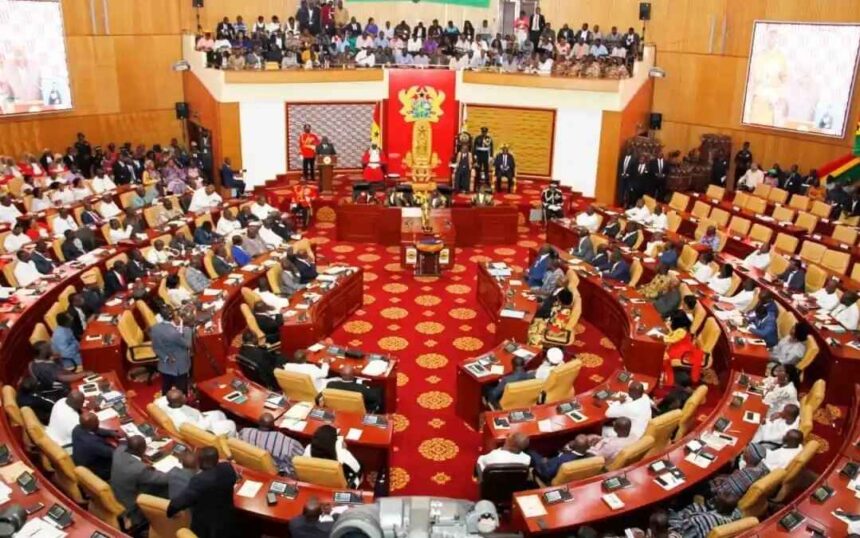Parliament has approved the Ghana Gold Board Bill 2025, paving the way for the establishment of the Gold Board. This newly created body will regulate the gold industry, ensure transparency, and enhance traceability while boosting Ghana’s foreign exchange earnings.
The Gold Board will be responsible for overseeing the purchase, sale, and export of gold. The government expects this initiative to generate substantial revenue, which will help stabilize the Ghanaian cedi.
Despite strong opposition from the Minority caucus, the bill was passed through a majority decision in Parliament. Critics argue that the bill could encourage illegal mining activities, commonly known as ‘galamsey.’
Majority Leader Mahama Ayariga lauded the passage of the bill, describing it as a historic milestone.
“Mr. Speaker, this is a landmark legislation. Those of us who sat through the night to pass this bill should be proud. We have justified the trust Ghanaians placed in us,” he stated.
However, the Minority walked out of Parliament during discussions on the bill. Their protest was triggered by the First Deputy Speaker, Bernard Ahiafor, rejecting their request to delay deliberations until 10 a.m. on Saturday, March 29, following the approval of the 2025 Appropriation Bill.
Also Read: African Development Bank Launches $50 Million Fund to Combat School-Age Hunger in Africa
Speaking to the media, Minority Leader Alexander Afenyo-Markin raised concerns about the government’s sincerity in tackling illegal mining. He criticized the allocation of GHC 4.6 billion to the policy, arguing that the move contradicts the government’s stated commitment to combating galamsey.
“We are all aware of the dangers posed by galamsey. Yet, our colleagues in government, who once vowed to stop it, are now endorsing it. They are using their numbers in Parliament to establish what is essentially a Galamsey Board,” Afenyo-Markin remarked.
He further questioned why the government prioritized this allocation over other pressing economic needs, such as agriculture, women’s banking, and the 24-hour economy policy.
Afenyo-Markin also expressed skepticism over the government’s decision to centralize gold purchases under the Gold Board. He argued that small-scale mining, which is often equated with galamsey, is being institutionalized rather than regulated.
“How can you claim to be fighting illegal mining while establishing an entity that will monopolize gold purchases from small-scale miners? This policy raises more questions than answers,” he stated.
Despite these objections, the government maintains that the Gold Board will bring much-needed order and efficiency to the industry. As the bill takes effect, all eyes will be on its implementation and its impact on Ghana’s gold sector and economy.









